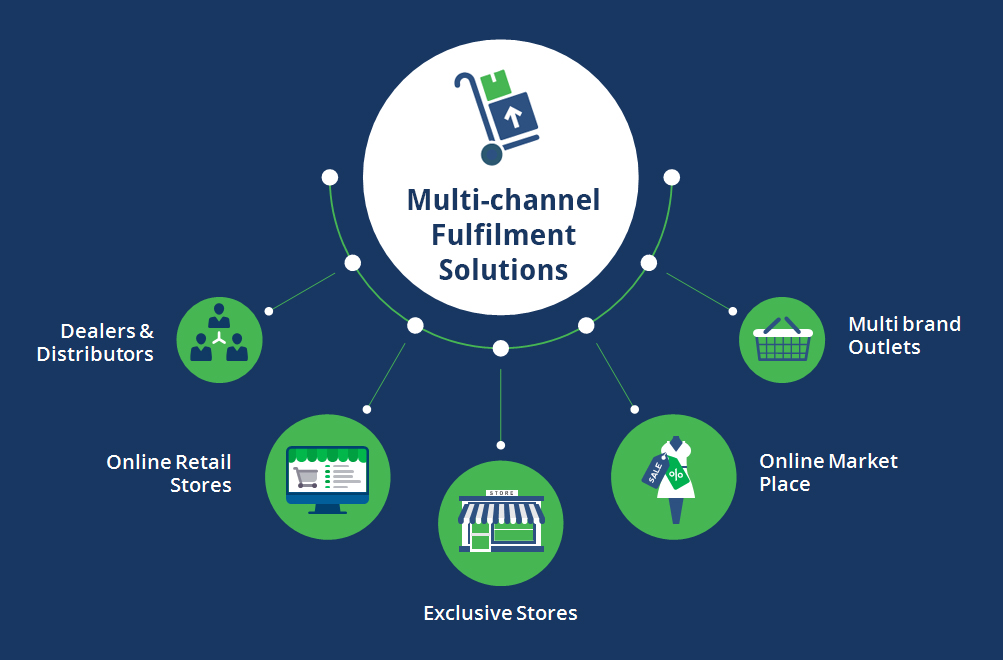In today’s digital age, businesses of all sizes and types are turning to eCommerce as a way to reach customers and increase revenue. However, simply having an eCommerce website is no longer enough. Consumers expect to be able to purchase products from a variety of different channels, including online marketplaces, social media, and even in-store. This is where multichannel eCommerce comes in.
What is Multichannel eCommerce?
Multichannel eCommerce refers to the practice of selling products through multiple channels, such as a website, online marketplaces, and social media. This allows businesses to reach a wider audience and make it more convenient for customers to purchase products.
Why Multichannel eCommerce Management System is a Must-have
In order to be successful in multichannel eCommerce, businesses need to have a system in place to manage all of their channels effectively. This is where a multichannel eCommerce management system comes in. These systems allow businesses to easily manage their inventory, orders, vendors, and customers across all channels. They also provide important analytics and reporting, so businesses can see how their different channels are performing.
Key Trends in Multichannel Retail
As multichannel eCommerce becomes more popular, certain trends are starting to emerge. Some of the key trends in multichannel retail include:
Social Commerce: social media is becoming an increasingly important channel for eCommerce. Many businesses are now using social media platforms such as Facebook and Instagram to sell products directly to customers.
eCommerce Voice Search: As voice assistants like Amazon’s Alexa and Google Home become more popular, eCommerce businesses need to optimize for voice search to make it easy for customers to find products.
Progressive Web Apps (PWAs): PWAs are a type of mobile app that can be accessed through a web browser, rather than having to be downloaded from an app store. They offer many of the same features as a traditional app, but are faster and easier to use.
Omnichannel Selling: Omnichannel selling refers to the practice of providing a seamless shopping experience across all channels, whether customers are shopping online, in-store, or on social media.
It’s worth noting that there is a difference between multichannel and Omnichannel, Multichannel ecommerce is the practice of selling products through multiple channels such as website, social media and marketplaces where as Omnichannel ecommerce is the practice of providing a seamless shopping experience across all channels, whether customers are shopping online, in-store, or on social media.
Dynamic Order Fulfillment: With dynamic order fulfillment, businesses can automatically choose the best warehouse or location to ship a product from based on factors such as inventory levels and shipping costs.
Order online & pick from the store: With this method, customers can place an order online and pick it up at a physical store. This is becoming increasingly popular as a way to give customers more control over when and where they receive their products.
Chatbots: Chatbots are becoming increasingly popular as a way to provide customer service on eCommerce websites and other channels.
AR & VR: Augmented reality (AR) and virtual reality (VR) are starting to be used in eCommerce as a way to provide customers with a more immersive shopping experience.
Live Streaming: Live streaming is becoming a popular way for eCommerce businesses to connect with customers and showcase products in real time.
Must-have Modules & Features of a Multichannel eCommerce Management System
In order to be successful with multichannel eCommerce, businesses need to have a management system that includes the following modules and features:
Inventory Management: This module allows businesses to manage their inventory levels across all channels, so they can ensure that products are always in stock.
Order Management: This module allows businesses to manage orders from all channels in one place, making it easy to keep track of customers’ purchases.
Vendor Management: This module allows businesses to manage the relationships with their vendors and suppliers, ensuring that products are delivered on time and at the right price.
CRM (Customer Relationship Management): This module allows businesses to manage and analyze customer interactions and data across all channels, so they can improve customer satisfaction and retention.
Product Management: This module allows businesses to manage and update product information across all channels, ensuring that customers always have access to the most up-to-date information.
Warehouse Management: This module allows businesses to manage their warehouses and distribution centers, so they can ensure that products are shipped out on time.
Analytics & Reporting: This module allows businesses to track key performance indicators (KPIs) and other metrics across all channels, so they can see how their different channels are performing and make data-driven decisions.
Final Conclusion
In conclusion, multichannel eCommerce is becoming increasingly important as customers expect to be able to purchase products from a variety of different channels. A multichannel eCommerce management system is a must-have for businesses looking to be successful in this space. By having a system that can effectively manage inventory, orders, vendors, and customers across all channels, businesses can improve their operations and increase revenue.



Recent Comments